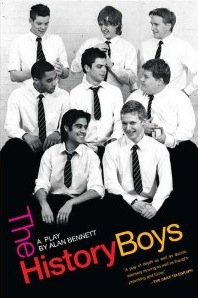 Are you ready to go on the adventure of a lifetime? The first volume in a new trilogy, Bone: Quest for the Spark, Book One follows 12-year-old Tom and his faithful raccoon Roderick on an amazing journey to stop the spread of evil. Along the way, they make some unlikely friends, including three members of the Bone family, two Rat Creatures, a Veni Yan warrior, and a woman who is a cross between Mother Earth and a shapeshifter.
Are you ready to go on the adventure of a lifetime? The first volume in a new trilogy, Bone: Quest for the Spark, Book One follows 12-year-old Tom and his faithful raccoon Roderick on an amazing journey to stop the spread of evil. Along the way, they make some unlikely friends, including three members of the Bone family, two Rat Creatures, a Veni Yan warrior, and a woman who is a cross between Mother Earth and a shapeshifter. Written by Tom Sniegoski and illustrated by Bone creator Jeff Smith, with color by Steve Hamaker, this book is sure to please fans of adventure stories. It has all the elements which make a journey great: friends, foes, unlikely allies, transportation contraptions, food, good intentions, and sheer determination. Really, all that's missing is a mix tape. When surrounded by all types of beings and personalities, our protagonist, Tom, remains unshaken, making him a wise choice to lead this crazy band of travelers. Mal from Firefly would be proud of this young man.
On more than one occasion, author Tom Sniegoski has reduced me to tears - because he makes me laugh so hard that I cry. The man puts me in stitches when we're talking face-to-face. Now it's your turn, gentle readers. Between Roderick's blunt declarations to the bumbling Rat Creatures (who, in my mind, sound an awful lot like Lurky from Rainbow Brite), this may be Sniegoski's funniest book to date. It blends comedy and action effortlessly. It also has great pacing. The different characters' plotlines are balanced, then become interwoven, bringing to mind Neil Gaiman's Stardust.
The Bone graphic novels have a large following, and those dedicated readers will love the new stories. Thanks to Smith, Hamaker, and Sniegoski, the first installment of Quest for the Spark wholly captures the spirit of the Bone series in both picture and text. This trilogy will surely spark the interest of new readers as well.
While you are waiting for the second volume in the trilogy, you ought to pick up the original Bone graphic novels as well as Bone: Tall Tales, also by Sniegoski & Smith. (Sniegoski & Smith... Hmm... Kind of sounds like a famous pair of spies or secret agents, doesn't it? Watch out, Scarecrow & Mrs. King!)
On a personal note: I cried when I read the book's inscription. Sniegoski dedicated this book to his faithful dog, Mulder. We miss you, buddy.











